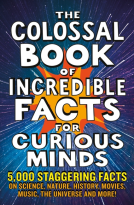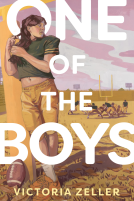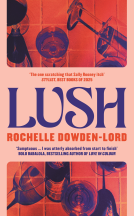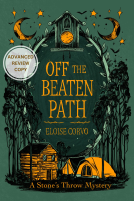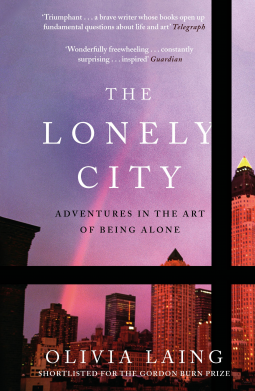
The Lonely City
by Olivia Laing
This title was previously available on NetGalley and is now archived.
Send NetGalley books directly to your Kindle or Kindle app
1
To read on a Kindle or Kindle app, please add kindle@netgalley.com as an approved email address to receive files in your Amazon account. Click here for step-by-step instructions.
2
Also find your Kindle email address within your Amazon account, and enter it here.
Pub Date Mar 02 2017 | Archive Date May 31 2017
Description
When Olivia Laing moved to New York City in her mid-thirties, she found herself inhabiting loneliness on a daily basis. Increasingly fascinated by this most shameful of experiences, she began to explore the lonely city by way of art. Moving fluidly between the works and lives of some of the city's most compelling artists, Laing conducts an electric, dazzling investigation into what it means to be alone, illuminating not only the causes of loneliness but also how it might be resisted and redeemed.
SHORTLISTED FOR THE 2016 GORDON BURN PRIZE
CHOSEN AS 'BOOK OF THE YEAR' BY
Observer
Guardian
Telegraph
Irish Times
New Statesman
Times Literary Supplement
Herald
Advance Praise
'Triumphant . . . a brave writer whose books open up fundamental questions about life and art' - Telegraph
'Wonderfully freewheeling . . . constantly surprising . . . inspired' - Guardian
'Luminously wise and deeply compassionate . . . a fierce and essential work' Helen MacDonald, author of H is for Hawk
'Unusually brave . . . Sublime' - The Times
'A new kind of literature . . . Endlessly, compulsively fascinating' - New Statesman
'Laing cuts close to the bone of a universal yet often unrelatable state' - Financial Times
Available Editions
| EDITION | Paperback |
| ISBN | 9781782111252 |
| PRICE | £9.99 (GBP) |
Featured Reviews
The Lonely City is a fluid book, part memoir on loneliness in New York, part history of art and certain artists in the later 20th century, and part exposition on how being alone and being different has affected different kinds of art. The witty subtitle, ‘adventures in the art of being alone,’ summarises the reading experience: it is an adventure, not always a happy one, through art and loneliness and the sometimes harsh environment of the city.
The title initially drew me to the book, which I didn’t realise was about art and the lives of artists in New York as well as about loneliness in a big city. As someone who knows extremely little about art, I found it easily engaging and a fascinating look at artists of varying levels of general fame. Chapters focus around elements of her own time in New York and a specific artist and their work and history, but later chapters bring together aspects of previous ones to form the larger picture. From Warhol to various artists working in photography, music, and other media, the way in which Laing draws lines between art, loneliness and New York, particularly in relation to the AIDS crisis and LGBT communities, is deeply interesting and moving. Gender and sexuality play an important part throughout the book, which I did not expect from the blurb but was pleasantly surprised to find.
The kinds of loneliness on display in art and in life, being physically isolated and emotionally alone and socially outcast to name a few, are discussed to show that the concept of ‘the lonely city’ is not a simple one. Ultimately, Laing focuses on positivity that can come from looking at loneliness as well as on great pieces of art in different forms. The way in which The Lonely City blends ideas of loneliness, self, and art, not rigidly in one genre or focus, makes it a versatile and engaging read for anyone interested in social issues, art, LGBT history, or how cities can shape the people and work within them.
 Paromjit H, Reviewer
Paromjit H, Reviewer
It took me some time to read this simply because I found it riveting, beautifully written, and I wanted to savour it. Olivia Laing is a British writer and critic who moved to New York to be with her American partner only to find the relationship disintegrating. She falls prey to a crippling loneliness which gives rise to this hybrid memoir, and art history on the theme of loneliness; and how she finds an alleviation of her loneliness through the visual arts. Given her family history, she focuses primarily on LGBT artists from New York's East Village with the exception of the odd Henry Darger from Chicago. She knits together a profound, moving and multilayered narrative. It covers her life, the work and lives of the artists, psychological insights and speculation, the state of being lonely specifically in a urban setting and a picture of New York through her eyes.
She looks primarily at four artists whom she is particularly drawn to. Edward Hopper whose work epitomises urban loneliness as exemplified through his most famous work Nighthawks, Andy Warhol whose life was spent hiding his sense of being apart through his entourages and equipment and the hoarded art of Henry Darger depicting the bizarre and the strange amidst a life of disintegration, violence and mental illness. Laing's particular favourite is David Wojnarowicz who experienced a particularly brutal childhood and life spent suffering as the eternal outsider. He was gay and contracted Aids. He channelled his rage at being stigmatised and silenced, by a punitive rather than compassionate society, by connecting with the group Act Up, to counter his loneliness until his death. His art and personal response is political to the cards life dealt him, he equates silence with death. His openness about his fear, pain, failure and grief has an honesty that allows him both to be vibrantly alive and counters loneliness.
The author looks at technology and its potent ability to connect whilst at the same time draws our attention to the solitary figure addicted to their phone and computer with its contradictory picture of the illusion of connection. There is the frustrations of social media, incessant social pressures, of people under constant surveillance and being judged rather than understood. The sense of loneliness is being compounded in our world today, with its shame and fear giving rise rise to concealment of the condition and carries heavy costs to public health.
Laing writes with empathy, humanity and curiosity pulling together disparate pieces of knowledge in her quest to understand and address loneliness. It raises as many questions as it answers. I did not always agree with the author but I did find the book intensely thought provoking and marvelled at its wide subject matter. I particularly engaged when near the end Laing says that amidst the shine 'of late capitalism, we are fed the notion that all difficult feelings - depression, anxiety, loneliness, rage - are simply a consequence of unsettled chemistry, a problem to be fixed, rather than a response to structural injustice..' She leaves us by saying 'Loneliness is personal, and it is also political. Loneliness is collective; it is a city'. Laing finds her own answers but prescribes no universal panacea whilst lauding the values of kindness and solidarity. A highly recommended book which I loved reading. Thanks to Canongate for an ARC.
Readers who liked this book also liked:
Nigel Henbest; Simon Brew; Sarah Tomley; Ken Okona-Mensah; Tom Parfitt; Trevor Davies; Chas Newkey-Burden
Entertainment & Pop Culture, Humor & Satire, Nonfiction (Adult)








